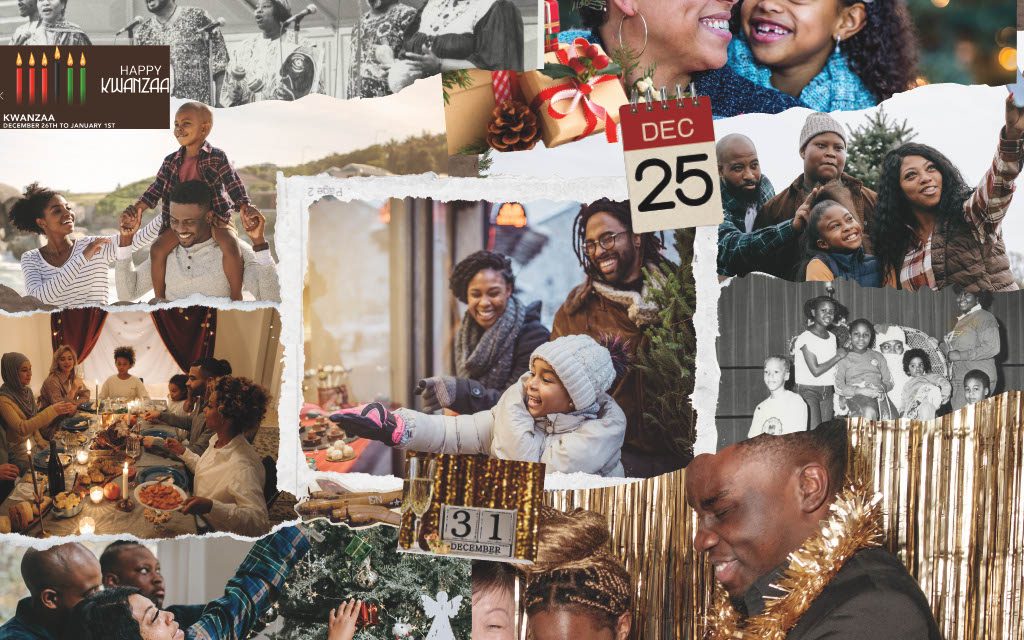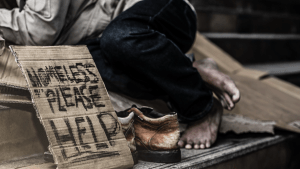By Megan Sayles
AFRO Business Writer
msayles@afro.com
North Baltimore resident John Jones’ earliest memory of the holidays dates back to when he was five years old. Raised in Detroit, he fondly recalls his parents’ annual show on the big day. Each year, the couple would pretend to catch Santa working under the Christmas tree just as their son awoke for the day. As an adult, recalling the tradition still brings a smile to his face.
Though he grew up celebrating the traditions of Christmas, today the math teacher observes Kwanzaa, a week-long African-American and Pan-African holiday that honors history, values, family, community and culture.

“During Kwanzaa, we observe each day by trying to build community within our small, social circles,” said Jones. “We try to use the holiday to build community and trust and to learn more about our heritage and the Swahili language.”
Kwanzaa, celebrated from Dec. 26 to Jan. 1, was created by activist and author Maulana Ron Karenga, a native of Maryland, in 1966, according to the National Museum of African American History and Culture. The holiday centers on seven principles, expressed in Swahili, the most-spoken language in Africa. They are: umoja (unity), kujichagulia (self-determination), ujima (collective work and responsibility), ujamaa (cooperative economics), nia (purpose), kuumba (creativity) and imani (faith).
“It’s useful to get to know the different principles of Kwanzaa. They’re helpful for being mindful about how we interact with our communities,” said Jones. “It’s something we only get to observe once a year, but we try our best to uphold those principles throughout the year.”
Olu Butterfly Woods, a self-described “child of the diaspora,” was born in Nigeria and then spent time living in St. Croix, U.S. Virgin Islands before coming to Baltimore. She, like Jones, grew up celebrating Christmas.
Her grandmother was Lutheran, so she remembers exchanging gifts and attending church service each year. But, Woods’ mother exposed her to the traditions of a variety of faiths, including Buddhism and traditional African religions.
Now, with her four children, Woods celebrates Kwanzaa.
“My children end up being the center of the tradition,” said Woods. “I have four, and they range from eight to 16, but they all participate, and they all enjoy taking turns lighting the candles and saying what the different principles mean to them.”

(AFRO Graphic / Dana Peck)
During their ceremony, Woods’ mother provides the items for the Kwanzaa table. The mkeka, a woven mat, is the centerpiece of the table, holding all other Kwanzaa symbols. These symbols include the kinara, a seven-pronged candle holder that represents unity; the mishumaa, seven candles that coincide with the seven Kwanzaa principles; the unity cup; mazao, or crops; muhindi, or corn, and gifts.
The muhindi is special for children as it represents them as the future of the family. An ear of corn is placed on the mkeka for each child in the family.
“They love it,” said Woods. “They also usually get handcrafted gifts from Black businesses and Black creators, some practical and some creative.
Some holiday traditions may not even be tied to a religion or culture. Chrissy Thornton, president and CEO of Associated Black Charities (ABC), has a birthday on Christmas Eve. One of her customs is getting a cake and listening to nostalgic holiday music.
“Growing up, our family tradition was to go to Carvel and get an ice cream cake for my birthday. I still love and get the ice cream cakes, but they have to be Carvel brand,” said Thornton. “We also listened to a whole lot of the Temptations’ Christmas album, and I still do that today too.”
Brianne Mobley, founder of a local Black flea market, and her daughter pick a new theme for their Christmas Tree each year. They also enjoy a holiday feast with Maryland staples.
“This year it’s a disco ball tree,” said Mobley. “My family also has a huge seafood feast on Christmas Eve. My mother and I cook crabs, fish and other seafood dishes.”

According to Claudia Thorne, a professor of social work at Coppin State University (CSU), traditions play a critical role in our society. They help to foster solidarity between communities, inform people’s identities and transmit values.
“In the Black community, cultural traditions observed during the holidays are the ties that create and connect us to one another over space and time,” said Thorne. “Traditions are related to cultural heritage, building community and connecting generations.”
As Black culture can be overlooked, erased or appropriated by mainstream society, Thorne said keeping traditions, as a means of community-building, is crucial.
“Historically, the Black community has faced various societal challenges, including discrimination and marginalization, making cultivating a strong sense of community even more vital,” said Thorne. “This supportive network offers resilience and strength for its members, where shared values and mutual support can counterbalance external adversities.”
Traditions can also be a benefit to mental health, according to Thorne. They can provide a sense of stability, connectedness and comfort. But, she warned that the holidays can also be a triggering time for some.
“Many people are isolated and challenged to meet the financial demands of the holidays. Being with family during the holidays can bring on feelings of anger, depression and loss,” said Thorne. “We must acknowledge that we can create new traditions that preserve and enhance mental health. Beating holiday blues can include self-care practices such as prayer, meditation, being active, being with chosen friends and families and volunteering with chosen friends and family.”
The post From Christmas to Kwanzaa: The role of traditions in the holiday season appeared first on AFRO American Newspapers.











